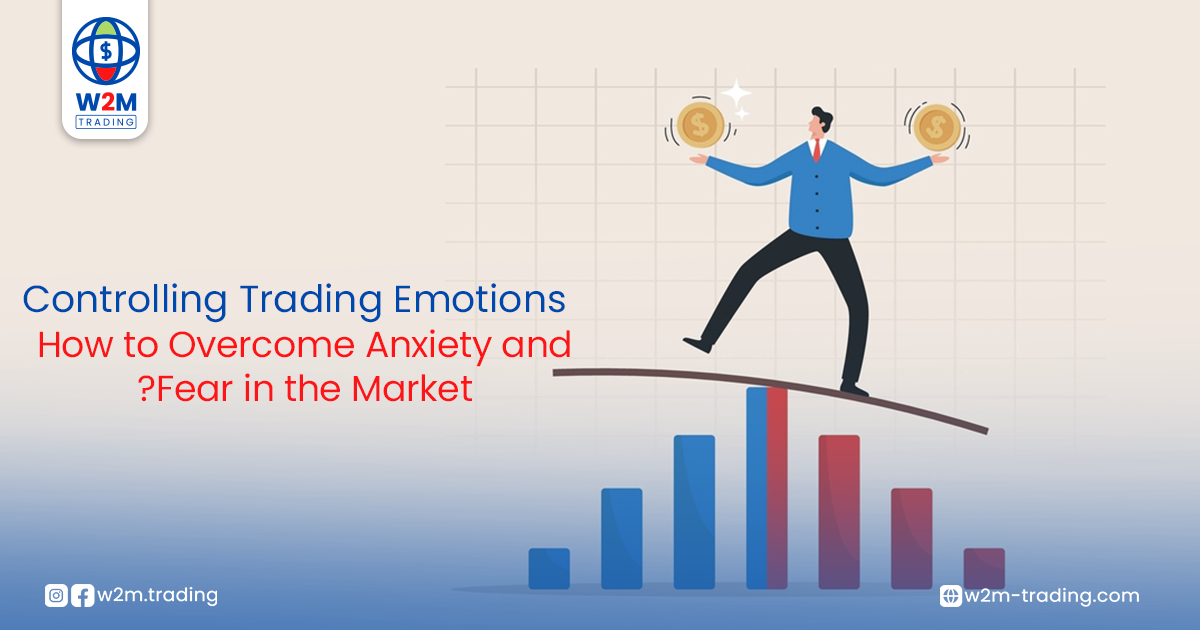- Attractive Education
- Beginner to Advance
- Flexible Timing

Trading isn’t just about crunching numbers or analyzing charts—it’s a psychological journey that demands emotional control and calm decision-making in a highly volatile environment. Managing fear and greed can be difficult, especially for beginners, but it’s a skill that directly impacts your success in the market. In this article, we’ll explore the importance of controlling your emotions while trading and how you can develop this skill to boost your performance.
Trading emotions are the feelings that arise during buying and selling activities in the market. They commonly include:
Fear: Fear of loss or making the wrong move can cause hesitation or rushed decisions.
Greed: The desire to earn more can lead traders to ignore risk management and overtrade.
Regret: Feeling regret over past trades can impact your confidence, leading to hesitation or emotional overreaction in future trades.
Even the best trading strategies can collapse under emotional pressure. Emotional discipline is essential for long-term success in trading. Controlling your emotions allows you to:
Make better decisions: A calm, focused mindset enables logical, well-planned trading decisions.
Avoid emotional mistakes: Emotional control helps you stay away from panic-driven trades and impulsive actions.
Achieve consistent results: Sustainable success comes from repeated, rational decisions—not emotional reactions.
Here are several practical strategies to help you stay in control during trading:
Before entering a trade, define a detailed plan with entry and exit points, profit targets, and stop-loss levels. A plan keeps you grounded and helps remove emotional bias from your decisions.
Managing risk is crucial. Set proper position sizes and realistic stop-loss levels. When you know your risk is controlled, it reduces fear and boosts your confidence.
If you’re a beginner, trade small amounts initially. Smaller positions help reduce anxiety over potential losses and allow you to focus more on learning and refining your strategies.
If you’re feeling anxious or under pressure, step away from the market. Trading in an emotional state often leads to irrational decisions. Taking a break can help reset your mind.
After each trade, calmly analyze what went right or wrong. Learn from your mistakes instead of dwelling on them. Over time, this will help improve your strategies and emotional discipline.
Losses are an unavoidable part of trading. The key difference between successful traders and others is how they respond to loss. Here’s how to deal with it:
Accept losses as part of the process: Every trader faces losses. What matters is how you respond.
Keep learning and improving: Use losses as learning opportunities to sharpen your strategies.
Don’t let one loss affect your next trade: Stay calm and stick to your plan. Don’t let frustration carry over.
Patience and discipline are the pillars of trading success. Learn to wait for the right opportunities, and don’t let emotions dictate your trades. Sticking to your plan leads to smarter decisions and protects you from emotional swings.
During stressful periods, techniques like deep breathing or meditation can help calm your nerves. If you’re feeling overwhelmed, pause for a few minutes to reset your focus and make better decisions.
This site is protected by reCAPTCHA and the Google
Privacy Policy and
Terms of Service apply.